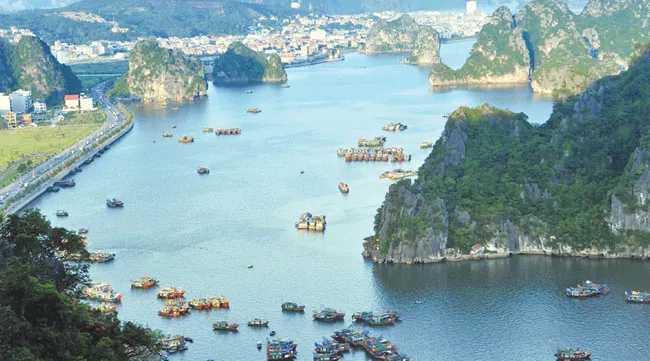VN hosts ‘environmentally sustainable city' talks

The High-Level Seminar on Environmentally Sustainable Cities (ESC) is the flagship collaborative initiative of 18 East Asia Summit (EAS) participating countries (consisting of 10 ASEAN member states, plus Australia, China, India, Japan, the Republic of Korea, New Zealand, the US and Russia) to foster concrete ESC activities in the region.
Vietnamese Deputy Minister of Natural Resources and Environment Vo Tuan Nhan said the seminar, the seventh of its kind, was held following an array of important global events relating to environmental protection and sustainable development.
He cited the Paris Agreement reached by 195 nations at the 21st Conference of the Parties to the United Nations Framework Convention on Climate Change (COP21) in Paris late last year as an example.
Such commitments have opened up many opportunities and challenges for each participating nation in environmental protection as well as ESC development, the official said.
He also said that the Vietnamese Ministry of Natural Resources and Environment was working with the Asian Development Bank (ADB) to build a project on sustainable and resilient cities to improve the capacities of cities by addressing policy making and pollution.
Masaaki Kobayashi, Vice Minister for Global Environmental Affairs at the Ministry of the Environment of Japan, said cities are one of the key players in achieving the 2030 Agenda for Sustainable Development.
Thus, he encouraged concerned governments "to work with financial institutions, aid agencies and international development organisations to strengthen co-operation and networks with other local governments" to achieve the Sustainable Development Goals.
During the two-day seminar, delegates shared their experience to help the member countries establish and maintain a regional ESC network more efficiently.
They also compared notes on challenges hindering the development of ESC such as environmental pollution, climate change, and threats to biodiversity and water security.
Over the past years, a number of Viet Nam's cities have joined the ASEAN ESC Model Cities Programme, and three of them have received the ASEAN Environmentally Sustainable Cities Award, including Ha Long in the northern Quang Ninh province and Da Nang and Hue in the central region.
With the support of the Global Environment Fund, the Ministry of Natural Resources and Environment is teaming up with the ADB to set up a project on sustainable cities in an effort to strengthen institutional capacity and policies to address challenges regarding environmental pollution and climate change in urban areas.





